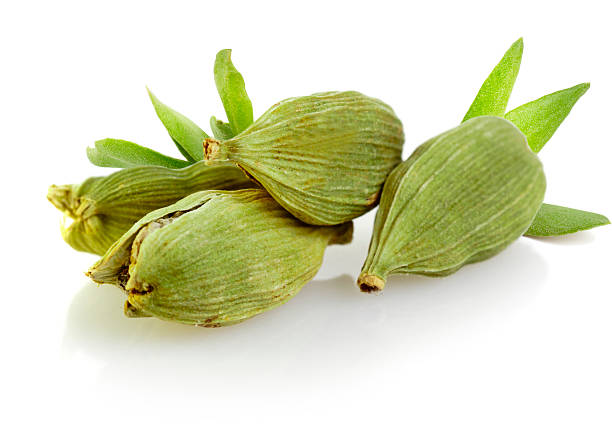Cardamom
Cardamom, often called the “Queen of Spices,” is a small, aromatic herb known for its intense flavor and numerous health benefits. Native to the tropical regions of Asia and parts of Africa, cardamom is used not only as a spice in culinary traditions but also as a natural medicine in Ayurveda and traditional healing systems. Its tiny green pods are packed with seeds that hold both fragrance and therapeutic power.
There are mainly two types
- Green Cardamom (Chhoti Elaichi) – Sweet, aromatic, and commonly used in Indian sweets and tea.
- Black Cardamom (Badi Elaichi) – Smoky and bold in flavor, used in savory dishes.
In this article, we’ll focus on green cardamom (chhoti elaichi)—the tiny pod with mighty health potential.
Active Compounds (Nutrient Composition – Per 100g of Fresh Lychee Pulp)
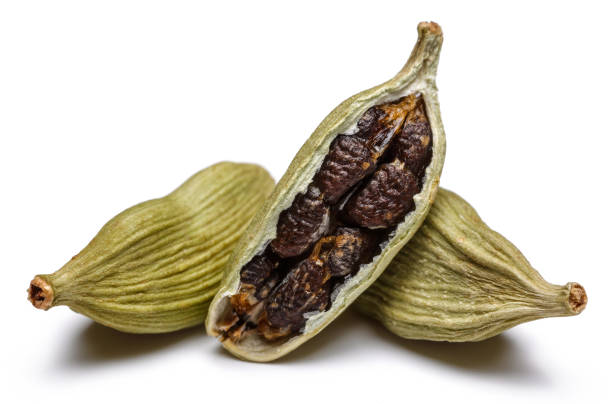
| Nutrient / Compound | Approximate Value | Health Benefit |
|---|---|---|
| Calories | 66 kcal | Low-calorie fruit, good for weight watchers |
| Water Content | ~81 g | Keeps body hydrated |
| Carbohydrates | 16.5 g | Natural sugars (glucose & fructose) for energy |
| Protein | 0.8 g | Minimal, but supports tissue repair |
| Fat | 0.4 g | Negligible |
| Dietary Fiber | 1.3 g | Supports digestion and gut health |
| Vitamin C | 71.5 mg (119% DV) | Strong immunity booster, skin health |
| Vitamin B6 | 0.1 mg | Brain and metabolism support |
| Copper | 0.14 mg (15% DV) | Supports red blood cell formation |
| Potassium | 171 mg | Balances blood pressure |
| Polyphenols | ~200 mg | Antioxidants – Anti-aging, cancer prevention |
| Flavonoids (Epicatechin) | Present | Cardioprotective, anti-inflammatory |
Top 8 Surprising Health Benefits of Cardamom
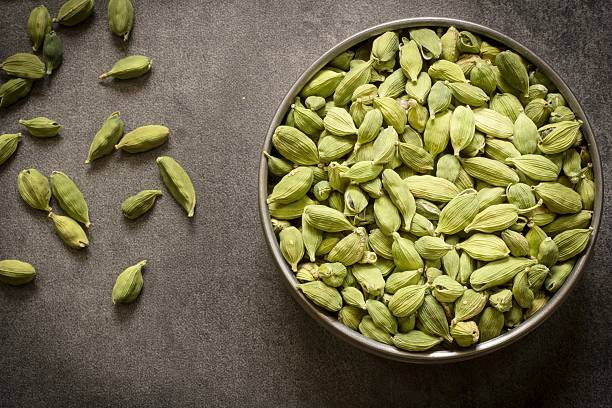
1. Improves Digestion
Cardamom contains essential oils such as cineole, which stimulate the digestive system. It helps in breaking down food more efficiently, reducing bloating, indigestion, flatulence, and heartburn.
Tip: Chewing a pod after meals helps relieve gas and improves gut health.
2. Relieves Respiratory Issues
Cardamom has anti-inflammatory properties that can ease bronchial congestion, asthma, coughs, and colds. It acts as a natural expectorant, clearing out mucus and improving breathing.
Traditional Use: Elaichi tea is often used in Ayurveda to calm the respiratory tract.
3. Acts as a Natural Mouth Freshener
Its strong aroma not only freshens breath but also kills bacteria in the mouth. It’s commonly used in natural toothpaste and chewing gums.
Fun Fact: In ancient India, chewing cardamom was a royal practice for oral hygiene.
4. Supports Heart Health

The potassium and antioxidants in cardamom help lower blood pressure and reduce the risk of stroke. It relaxes blood vessels and improves circulation.
Scientific Insight: A study published in the Indian Journal of Biochemistry showed significant BP reduction after cardamom supplementation.
5. Boosts Immunity
Cardamom is loaded with antioxidants that help fight infections, detoxify the body, and strengthen immune response. It supports white blood cell function and reduces inflammation.
6. Helps Manage Blood Sugar
Studies suggest cardamom may improve insulin sensitivity and help regulate blood glucose levels, making it beneficial for people with diabetes.
Pro Tip: Sprinkle a pinch of cardamom powder into herbal tea or smoothies for a sugar-free sweet flavor.
7. Enhances Skin & Hair Health
Due to its antimicrobial and antioxidant properties, cardamom improves skin tone, reduces acne, and prevents scalp infections. It also helps in detoxifying the blood which reflects on skin radiance.
DIY Mask: Mix cardamom powder with honey and apply as a natural face mask.
8. Stress Relief and Mood Enhancement
Its aroma has a calming effect on the nervous system. It’s often used in aromatherapy to relieve anxiety and fatigue.
Bonus Benefit: Some studies indicate it may have mild antidepressant effects due to its influence on serotonin pathways
Scientific Basis Behind the Benefits
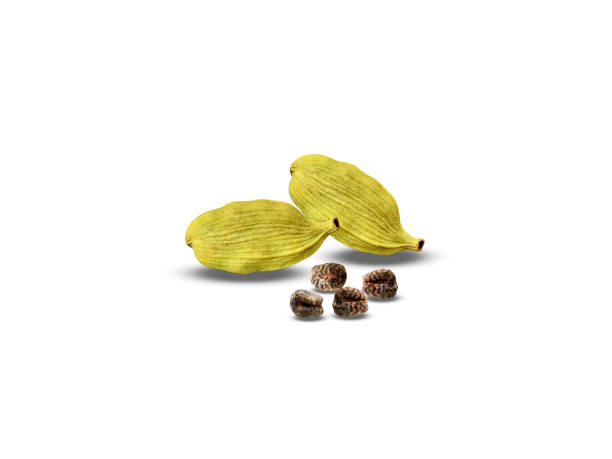
Cineole: The Magic Compound
Cineole is an essential oil found in cardamom responsible for its strong aroma and medicinal properties. It:
- Stimulates digestive enzymes
- Reduces inflammation
- Acts as an antimicrobial agent
Antioxidants: Polyphenols and Flavonoids
These compounds protect the body from oxidative stress and cell damage, reducing the risk of chronic diseases.
Antimicrobial and Anti-inflammatory Properties
Multiple studies have shown that cardamom extracts can inhibit the growth of harmful bacteria and reduce internal inflammation.
How to Use Cardamom in Daily Life
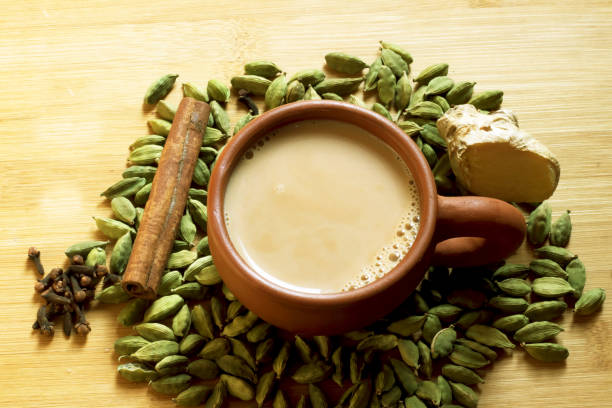
1. Cardamom Tea
- Add 2 crushed pods to your regular black or green tea.
- Boil with water and optionally add ginger or tulsi.
Benefits: Improves digestion, breath, and relieves cold.
2. As a Spice in Food
- Use whole pods or powdered form in curries, rice, and sweets like kheer or halwa.
3. In Milk or Coffee
- Add a pinch of cardamom powder to warm milk before bed or in coffee for a flavorful twist.
4. As a Mouth Freshener
- Chew 1-2 pods after meals.
5. Face or Hair Packs
- Mix cardamom powder with aloe vera, curd, or honey for skin and hair benefits.
Side Effects of Cardamom
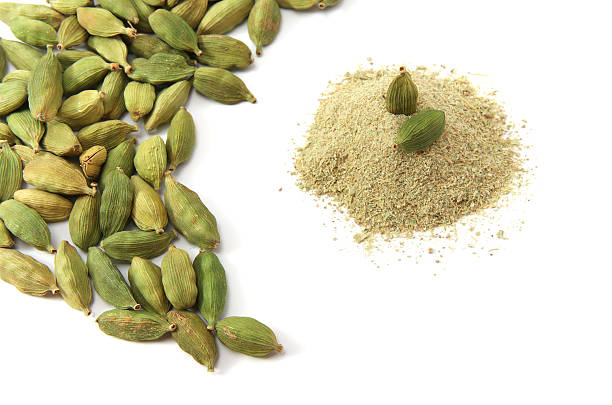
Though cardamom is safe for most people when consumed in moderate amounts, excess intake or allergic reactions can occur.
Common Side Effects
- Allergies: Rash, itching, or difficulty breathing in sensitive individuals.
- Gallstones: Large amounts may stimulate gallbladder contractions, not suitable for people with gallstones.
- Digestive Upset: Overconsumption may lead to nausea or acidity in rare cases.
Who Should Avoid It?
- Pregnant or lactating women should consult their doctor.
- People on blood pressure or diabetes medications—cardamom may interact with them.
Ayurvedic Perspective: Tridosha Balancer
In Ayurveda, chhoti elaichi is considered a Tridosha Nashak—it balances Vata, Pitta, and Kapha. It is believed to enhance Agni (digestive fire), promote clarity of mind, and purify the body.
Cultural & Historical Significance
- Used in Vedic rituals and Unani medicine
- Referred to in ancient Sanskrit texts as “Ela”
- Symbol of hospitality in Middle Eastern cultures
- Offered as prasad (sacred offering) in Indian temples
Conclusion: Tiny Pod, Tremendous Power
Cardamom might be small in size, but its health benefits are mighty. From treating digestion, improving skin, and boosting immunity, to calming the mind—this humble spice deserves a permanent place in your kitchen and wellness routine.
However, as with all herbs, moderation is key. To fully enjoy its benefits, use it as part of a balanced diet and consult your physician if you have any medical conditions or are on medication.
Final Tip
Try keeping a small jar of cardamom pods in your kitchen or office drawer. Whether it’s for refreshing your breath, calming your mind, or spicing up your tea—this natural gem is always ready to work its magic.
Disclaimer
The tips and suggestions mentioned in this article are intended for general informational purposes only. Before starting any fitness program, making changes to your diet, or trying any remedies related to health conditions, please consult your doctor or a qualified healthcare professional. Dr. You does not verify or endorse the authenticity of any such claims made herein

